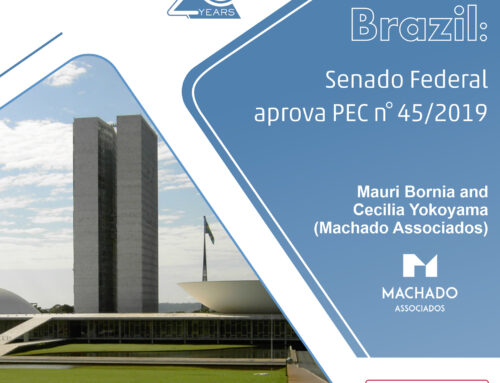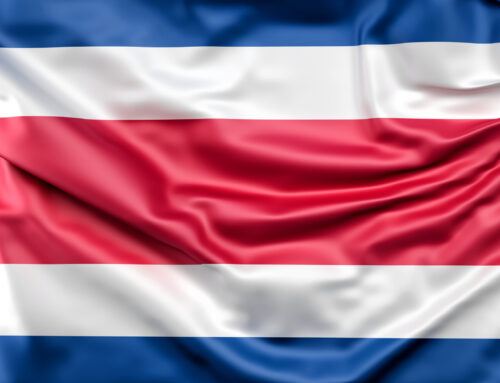Uruguay: Taxation of Artwork Guide in Uruguay
1. Legal Framework
1.1. How are income and wealth taxed in your country?
Individuals and legal entities are subject to tax on their Uruguayan-sourced income. Income tax is only applied at the national level. Uruguayan tax residents are also subject to income tax regarding certain kinds of income generated abroad.
Income tax is levied upon Uruguayan-sourced labour income (i.e. income derived from activities conducted or services rendered in Uruguay).
In relation to capital income, income tax is applied depending on the characterization of the in-come. For non-residents, income tax is levied upon Uruguayan-sourced capital income. For Uruguayan tax residents income tax is also triggered on foreign-sourced capital income derived from deposits, loans and placements of capital or credit with entities abroad.
Wealth tax is levied in Uruguay at the national level. Individuals who own assets located in Uruguayan territory on 31 December each year which are valued at above the non-taxable minimum, must pay a wealth tax thereon at progressive rates.
1.2. What is the range of the applicable tax rates for individuals on income and wealth?
Income tax on income from labour is applied at progressive rates ranging from 0% to 36% for Uruguayan tax residents, depending on the income level, and at 12% for non-residents.
In relation to capital income, income tax is applied at flat tax rates between 7% and 12% de-pending on the characterization of the income.
Wealth tax is applied at 0.5% to 0.8 % for tax residents and non-residents having an asset that generates income tax in Uruguay.
For those non-residents who are not non-resident income tax payers, the rate applied is 0.7% to 1.5%.
1.3. How are profit and net equity taxed in your country?
Uruguayan-resident companies and permanent establishments of foreign companies are taxed on their Uruguayan-sourced income. In addition to the taxes on such a corporation’s profit, distributions from the corporation to both Uruguayan-resident individuals and foreign shareholders would also be subject to withholding tax, applicable on the income subject to corporate income tax.
The taxed profits accumulated by the company since entry into effect of the Business Income Tax that are older than three years will be presumed to have been distributed (notional dividends) within the third month after year end.
Net equity located in Uruguay at fiscal year end is subject to net worth tax.
1.4. What is the range of the applicable tax rates for legal entities on profit and capital?
The rate is 25% on the net fiscal income of the entity, and withholding tax on the distribution is at a rate of 7%.
Foreign companies with no permanent establishment in the country are subject to Uruguayan income taxes on their Uruguayan-sourced income at a general rate of 12%, applicable on gross income Legal entities are subject to the net worth tax at a rate of 1,5% on net assets located in Uruguay at fiscal year end.
1.5. What kind of valuation is generally accepted in respect of certain assets (such as art) by the tax authorities?
For legal entities, valuation of assets is generally linked to cost of acquisition and valuation of an expert generally is not accepted. In the case of individuals, valuation of an expert is accepted for certain assets including art.
2. Taxation of Art
2.1. Individuals
Is there an obligation of declaring | disclosing private artworks to the tax or other authorities (list of inventories or alike)?
There is no legal obligation to disclose private artworks. In fact, the value of art works can be computed on a notional basis and without taking into account their real market value.
The law establishes that any taxpayer of the wealth tax who has real estate must determine a notional amount corresponding to the furnishing included in the property/s (including works of art).
According to that notional regime, the value of the furnishing or “ajuar” will be calculated as 10% or 20 % of the total taxed assets, with deduction of the admitted liabilities.
Despite this, it is established that individuals domiciled abroad who own properties in Uruguay but who do not reside there, or do so sporadically, have to have their works of art appraised by an expert for purposes of the wealth tax.
2.1.1. Income taxes
Is income generated from the sale of artworks taxed in your country? If yes, please indicate how (i.e. capital gains tax | income from self-employment).
Yes. The sale of artworks triggers a tax equivalent to 2.4% of the price of the sale. In fact, the law establishes a way of applying the income tax in which the net income obtained from the sale of the artwork is assumed to be 20% of the price, and personal income tax at 12% is applied to that percentage.
2.1.2. Wealth taxes
Does your country envisage any specific categories of classification of artworks (e.g. tax-exempt personal belongings/household)?
Yes. For purposes of paying the wealth tax the artworks are included in a category that includes the personal belonging/households, collections, documents and books. This category denominated as “ajuar” is determined on a notional basis as a percentage of the other assets of the individual subject to the wealth tax.
Is there an obligation to declare works of art in the tax return? Please indicate how this is done or if there is any other obligation of declaration.
No.
How are works of art valued for tax purposes in your country? Are there any common and accepted valuation methods, i.e. at cost, insured value, market price?
For purposes of wealth tax applicable to individuals, artworks are included in a category that includes personal belonging/households, collections, documents and books, denominated as “ajuar” in Spanish.
If the tax payer owns real estate in Uruguay, it will have to compute the “ajuar” as a taxable asset and it will include the artworks. The ajuar is calculated on a notional basis as the 10% or 20 % of the net value of the other assets subject to wealth tax after deducting certain liabilities.
Individuals domiciled abroad who own properties in Uruguay but who do not reside in the country, or do so sporadically, they do not have to compute the “ajuar” as a taxable asset. In such case, if the individual owns artworks in Uruguay, he would have to compute the artworks as taxable assets for the wealth tax for the market value determined by an expert.
2.1.3. Inheritance | gift taxes
In case of an inheritance or gift will there be any tax levied?
There is no inheritance tax. The donation or transfer for no consideration made by an individual of artwork located in Uruguay triggers a tax of 2.4% on the value of the artwork.
3. Taxation of legal entities (as owner of the artworks)
3.1. Corporate income taxes
How are profits deriving from the sale of artworks taxed?
The rate is 25% on the net fiscal income of the entity; for obtaining the net income the company will be able to compute the total acquisition price if the seller was taxed at an income tax rate equal to 25% or higher.
As a general rule, all expenses necessary to obtain the taxable income are deductible when determining net income. However, regulations establish that an expense is only deductible if it constitutes income for the other party (resident or non-resident) which is subject to business or personal income tax. These expenses are deductible by multiplying the expense by the ratio of the maximum rate applicable to income of the other party over 25% corresponding to the IRAE rate.
The remittance of dividends deriving from such transactions will be subject to a 7% withholding income tax.
Foreign companies with no permanent establishment in the country are subject to Uruguayan income taxes on their Uruguayan-sourced income at a general rate of 12%. In the case of the sale of artworks, the tax rate is applicable on a notional income of 20% of the transfer price, which derives on an effective tax rate of 2,4% on the transfer price. If the non-resident entity is in a low or no tax jurisdiction included in a list issued by the tax authority, the effective tax rate would be 7,5% on the transfer price of the artwork.
Are there any general advantages of a legal entity as owner of artworks instead of a private ownership?
No. Furthermore, from a tax perspective it is more beneficial to be a physical person than a le-gal entity, so there are no advantages for legal entities as owners of artworks.
4. VAT | Customs
When selling or dealing with works of art within your country what VAT implications have to be considered?
None. Artworks are exempted from the VAT.
When works of art cross the border of your country what needs to be considered regarding VAT | customs?
No VAT is applicable on the import or export of artworks. Regarding custom duties applicable on the import of artworks, same are applied on the value of the materials that form part of the artwork not taking into consideration the intangible value of the artwork.
Note that for the export of artwork it is necessary to obtain an authorization of the Commission of Cultural Patrimony of the Nation. If the artwork is considered of cultural interest for the country based on the value of the piece, the scarcity of similar pieces or any other similar circumstance that shows the singularity of the artwork, the Commission can forbid the departure of the artwork from the country.
5. Voluntarily disclosure program
What is the procedure in a voluntary disclosure of previously not properly declared art works and what are the expected consequences?
There is no specific procedure for voluntary disclosure of previously not declared artworks. If an individual/legal entity wants to voluntary declare artwork not properly declared in the past, he/it will have to file the correspondent tax return including the artwork and pay the correspondent taxes. The non-inclusion of a property in a declaration and the corresponding non-payment of applicable taxes do not generate criminal consequences, but there are economic sanctions applicable for late payment of the tax (fine of 20% plus interest capitalized every four months).
Does your country know a non-punishable voluntary disclosure programme?
There is no non-punishable voluntary disclosure programme in Uruguay for the declaration of artworks not properly declared.
6. Special provisions re taxation of arts
There are no special provisions re taxation of arts, other than the ones already mentioned above.
Writer: Gianni Gutiérrez, from Ferrere
Original file: WTSGlobal_TaxationOfArtworks-Guide





